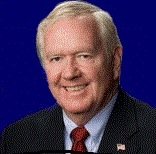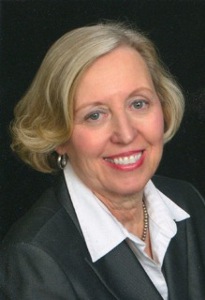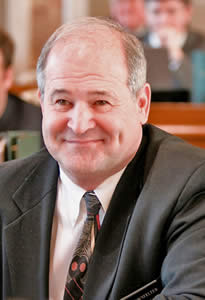
Veto session gets underway
Mind the gap. That’s the sign that warns passengers of the gap between the car and the station platform in the London underground. It is good advice.
Keep calm and carry on is another piece of advice from wartime London and we should take that advice as well.
There is a $400 million gap projected in Kansas state government finances and by law it must be closed. We must raise taxes and/or cut spending.
Many legislators ran and won on a no new taxes pledge. Besides, nobody likes tax hikes. The governor’s proposed tax on cigarettes and alcohol is deeply unpopular both among legislators and the public. It has absolutely no chance. Other tax ideas are only a little better received. Nonetheless, I am guessing that there will be a tax increase and I am guessing that it will not be a tax on income and that it will only come after a long and bitter session.
I remain opposed to tax increases. The most likely scenario is for an increase in the sales tax with a possible reduction to income tax excluding tax on income below fifty thousand dollars a year or a similar figure. An increase in the tax on gasoline is also being discussed – I am opposed to this as well and I do not think it will pass. But, an increase in the general sales tax and elimination of sales tax exemptions is very possible.
Cutting government spending is always popular until we get to the specifics. Then we will learn who is really in favor of what spending. Nobody wants their favorite program cut. But, something must be done.
Education is the largest part of the budget, accounting for more than half of the state general fund. Despite reports to the contrary, Education spending has been increasing every year for the last four years at least. Funding for education was increased again this year with the block grants to schools and it is scheduled for further increases in the next two years. These are real increases year over year. Reports of reductions are based on reductions to budgeted increases but the actual amounts funded and spent have only gone up.
Other parts of the budget will take the brunt. Everything other than education is now on the table. Across the board reductions will be considered. That’s too easy in my opinion. More targeted reductions will be more difficult but necessary. Once they are exhausted attention will very likely turn back to education. Consolidation of school districts and similar actions to gain economies while maintaining funding to the classrooms will become a likely target. Resistance will be fierce. There are a lot of administrator jobs at stake.
I thank KNEA president, Mark Farr, for pointing out that KNEA was not responsible for the State School Retirement System that KPERS took over in 1971. I stand corrected.
Where did all that Kansas money go?
Since the 2012 media coverage has largely been about tax benefits for the small business community to spark job growth. However, more everyday Kansans have benefited from the lower rates than small businesses that no longer pay income tax on business profit.
Kansans in every tax bracket have retained over a billion dollars because of lowered income tax rates. This is money that they have earned which was not taken by the state. The money has not gone anywhere; it continues to circulate in the Kansas economy.
Business has been growing and Kansas employment is at an all-time high. More Kansans are employed than ever in the state history. Unemployment is at sustained historic lows – now at 4.4% and under 5 % for well over a year.
Business is up, employment is growing and the costs of unemployment are down. Wages are starting to show some growth as well. There is more to be done but we are on the right track for more growth in the private sector. The public (government) sector is still too large.
The media story is that it is a disaster that more of your money is not being taken and given to government agencies. Don’t believe it.
Legislation of note
SB 154 creates a fair and predictable forecast for employers paying into the state’s unemployment insurance system. It revises the unemployment insurance law pertaining to the calculation of maximum weekly benefits, the assessment of employer contributions, and the administration of the system. It caps the maximum weekly benefit at the greater of either $474, which is the current maximum weekly benefit, or 55 percent of the average weekly wages paid to employees in insured work during the previous calendar year.
The conference committee report on SB 154 passed the Senate on vote of 29-11 and the House on a vote of 85-36. I voted in favor of this report.
HB 2061 permits the Division of Conservation of the Kansas Department of Agriculture to take action necessary to restore, establish, enhance, and protect natural resources with perpetual conservation easements for the purpose of compensatory mitigation required under federal and state law. This new authority would permit the acceptance, purchase, or other acquisition of conservation easements on behalf of watershed districts for the purpose of protecting compensatory mitigation sites.
The conference committee report on HB 2051 narrowly passed the Senate on a vote of 21-18. I opposed this report because of the perpetual part.
HB 2051 increases from 15% to 20% the amount of “good time credit” an inmate sentenced for a drug severity level three crime may earn. It also increases the amount of time that may be earned by any eligible inmate for program credits from 60 days to 90 days.
The conference committee report on HB 2051 passed the Senate on a vote of 40-0.
Revised revenue estimates
The Consensus Estimating Group overall revenue estimate for FY 2015, FY 2016 and FY 2017 was decreased by a combined $42.0 million.
For FY 2015, the estimate was increased by $157.0 million. Total taxes were decreased by $87.5 million; the estimate for other revenues increased $244.5 million. The other revenues estimate was heavily influenced by the enactment of the rescission bill early on in the session.
The estimate for FY 2016 was decreased by $98.2 million. Total taxes decreased by $99.6 million; the estimate for other revenues increased by $1.4 million.
For FY 2017, the estimate decreased by $100.8 million. Total taxes was decreased by $88.4 million; the estimate for other revenues decreased by $12.4 million.
Remember these are all estimates of projected government revenue. They are often accurate but not always and they are revised every six months – the increases and decreases shown here are from the last estimate in November of 2014. Remember also that things change and lower taxes and deregulation allow those changes that will help the economy grow and restore prosperity for Kansas. It is working. The private-sector is growing and the public sector is complaining loudly as their part of the economy is beginning to shrink. Expect the shrieking to continue.


